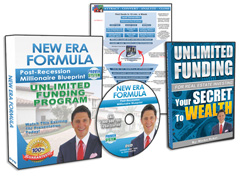

For a real estate investor, understanding real estate liens and appreciating how they could impact an investment matters. As an investment owner, it is prudent to own your investment free and clear of any claims absent voluntary liens contractually approved. No one, no entity, should have a legal claim to investor property without express approval and consent. As an investor owner, or even as a prospective investor owner diligently pursuing a property, it is a good idea to be familiar with those liens that can cloud a title. Those clouds on the title can either substantially diminish value and unduly complicate a potential resale or turn away a potential buyer entirely.
Any due diligent buyer will likely demand a full resolution and a clear title to be conveyed. Although property can be conveyed encumbered by an outstanding lien, there is no law that requires a removal of a lien as a condition precedent to a closing, if the lien survives the closing, it remains a cloud on the title.
A lien is a claim against a certain property to secure payment of a debt or obligation. The lien, typically a matter of public record duly recorded, advises the world that a certain debt or obligation exists and must be paid to clear it off the title. The lien collateralizes the property either voluntarily or involuntarily and if the debt or obligation is not settled, the collateralized property becomes the source for resolution of the debt or obligation.
Voluntary liens, of course, are contracts between a debtor and creditor, secured by the property itself. The most common type, by far, is a lender or bank loan, where a sum of money is exchanged upon the promise to repay upon agreed upon terms. On the other hand, involuntary liens are another matter entirely.
The seven most common involuntary liens are as follows:
- Property tax liens: A lien placed upon a property by a municipality for unpaid property taxes, and a most senior lien, superior to all other liens.
- Judgment liens: When a creditor obtains a court judgment upon the failure to pay a debt and the judgment attaches to the property.
- IRS tax liens: A lien filed for unpaid taxes. The IRS does not have to go to court to file their claim.
- Mechanics/Materialman liens: By far the most common type of lien and the ones most overlooked. Very easy to attach to property, usually for work completed but not paid for. An example of this is a construction lien as a result of an unpaid renovation. The owner paid the general contractor as covenanted but there is a subcontractor claim for work the subcontractor completed for the general contractor and the general contractor never paid the subcontractor for work completed. That subcontractor can file a lien on the property as a mechanics lien and it represents a cloud on the title.
- Divorce/Child Support liens: Both require Court approval.
- Water/Sewer liens: Liens imposed by a municipality for unpaid water/sewer charges.
- Homeowner Association liens: fees charged member residents for dues or special assessments and if unpaid, the HOA can file a lien.
A successful investor is a due diligent investor and knowing the common types of property liens that may impact an investment is sound business practice.
Request FREE Funding Kit and Discover How To Legally Bypass Banks And Gain Direct Access To "No-Credit-Required" Funding You Can Use To Achieve Your Financial Freedom... Start Now!












